Insomnia: a word that is thrown around casually in conversations, often accompanied by eye rolls and heavy sighs. But what lies beneath the surface of this seemingly common issue? Have you ever wondered if there might be more to insomnia than just trouble sleeping? In this article, we will explore the common misconceptions surrounding insomnia, debunking myths that have perpetuated our understanding of this complex condition. Join us as we dive into the realm of sleepless nights and discover the truth behind the misconceptions that have plagued our perceptions of insomnia for far too long.
Myth 1: Insomnia is Just a Fancy Word for Trouble Sleeping
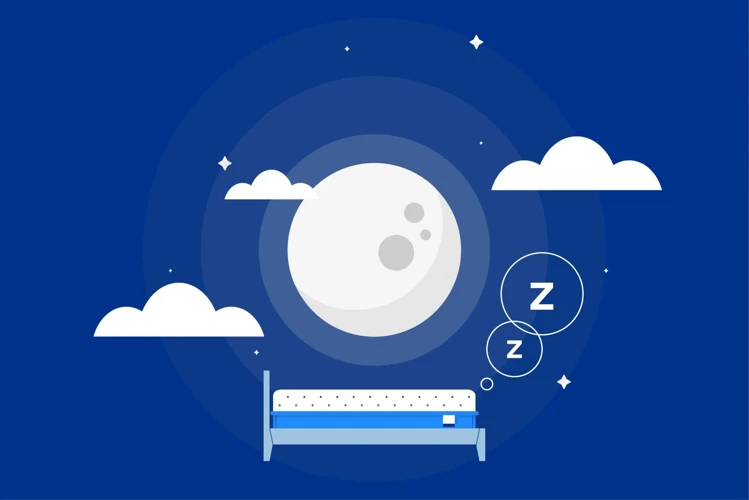
When people think of insomnia, they often associate it with simply having trouble falling asleep or staying asleep. However, this common misconception fails to capture the complexity and scope of this sleep disorder. Insomnia goes beyond just a fancy word for trouble sleeping; it encompasses a wide range of sleep-related issues that can significantly impact an individual’s well-being.
Insomnia involves more than just difficulty initiating or maintaining sleep. It can also manifest as early morning awakenings, a feeling of non-restorative sleep, or waking up frequently throughout the night. Additionally, individuals with insomnia may experience daytime symptoms such as fatigue, irritability, difficulty concentrating, and impaired cognitive function.
It’s essential to understand that insomnia is not merely a surface-level problem that can be solved with a few quick fixes. It is a multi-faceted condition that can be influenced by various factors, including lifestyle habits, medical conditions, medications, and psychological factors such as stress and anxiety.
To properly address insomnia, it is crucial to identify and address the underlying causes contributing to the sleep disturbance. This may involve making changes to one’s sleep hygiene routine, creating a relaxing sleep environment, implementing stress reduction techniques, or seeking professional help if necessary.
So, the next time someone dismisses insomnia as just a fancy word for trouble sleeping, kindly educate them about the true nature of this condition. Insomnia is a complex sleep disorder that requires a comprehensive understanding and tailored approaches to effectively manage and improve sleep quality and overall well-being.
To learn more about how diet can play a role in managing insomnia, check out our article on diet and insomnia.
Myth 2: Everyone Needs the Same Amount of Sleep
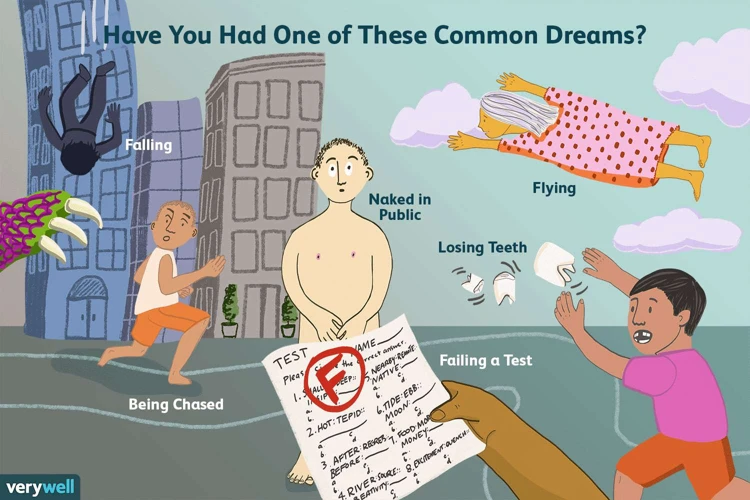
One of the common misconceptions about sleep is that everyone requires the same amount of it. However, this belief is far from the truth. The amount of sleep needed varies greatly from person to person and is influenced by various factors such as age, genetics, and lifestyle.
While the recommended range of sleep for adults is typically between 7-9 hours per night, some individuals may find that they function optimally with less sleep, while others may require more. It’s important to remember that sleep needs are individualized, and what works for one person may not work for another.
Factors such as age play a significant role in determining sleep requirements. For example, newborns and infants need significantly more sleep than adults, while older adults may experience changes in their sleep patterns and require lesser amounts of sleep. Additionally, factors like overall health, activity levels, and stress levels can impact the amount of sleep needed by an individual.
It’s crucial to listen to your body and prioritize getting the amount of sleep that leaves you feeling refreshed and alert during the day. If you consistently feel tired despite getting what you believe to be a sufficient amount of sleep, it may be worthwhile to evaluate your sleep quality and consider seeking medical advice.
Creating a relaxing sleep environment can greatly contribute to better sleep quality. Check out our tips for creating a relaxing sleep environment to optimize your chances of achieving a restful night’s sleep.
Understanding that sleep needs are unique to each individual is essential in debunking the myth that everyone requires the same amount of sleep. Embracing and prioritizing your own sleep needs will lead to improved overall well-being and functioning. However, if you’re consistently experiencing difficulty sleeping and it’s affecting your mental health, it’s important to seek professional help. Learn more about the impact of insomnia on mental health in our comprehensive article here.
Myth 3: Insomnia Means You Can’t Fall Asleep at All
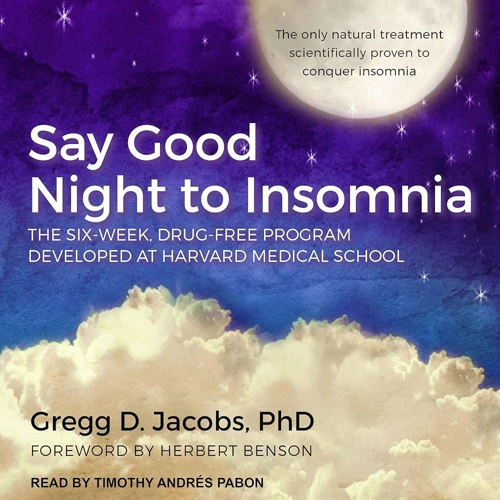
It is a common misconception that individuals with insomnia cannot fall asleep at all. While insomnia does involve difficulty falling asleep, it does not mean complete sleep deprivation. Insomnia is characterized by a range of sleep disturbances, including trouble falling asleep, staying asleep, or experiencing non-restorative sleep.
Individuals with insomnia may find themselves lying in bed for an extended period, unable to transition into sleep easily. This can be frustrating and anxiety-inducing, causing individuals to feel as though they are unable to fall asleep at all. However, it is important to recognize that even individuals with insomnia do eventually fall asleep, albeit after a prolonged period or with multiple awakenings throughout the night.
Insomnia is not solely about the quantity of sleep but also the quality. People with insomnia may experience fragmented, disrupted sleep, leading to feelings of restlessness and tiredness upon waking. They may feel as though their sleep is light, easily disturbed, or unrefreshing, contributing to daytime fatigue and impaired functioning.
Understanding this misconception is crucial in addressing and managing insomnia effectively. By recognizing that insomnia does not equate to complete sleep deprivation, individuals can focus on improving the quality and efficiency of their sleep. Implementing relaxation techniques, establishing a consistent sleep routine, and creating a sleep-friendly environment can all contribute to better sleep, even for those dealing with insomnia.
For additional tips on creating a relaxing sleep environment, check out our article on designing a sleep sanctuary. Remember, overcoming insomnia is possible with the right strategies and support.
Myth 4: Insomnia is Purely a Mental Condition
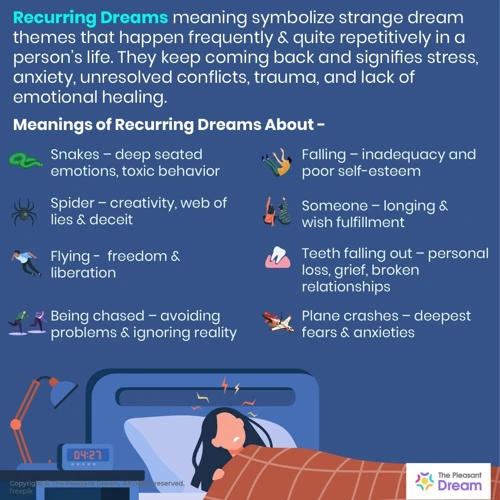
One common misconception about insomnia is that it is purely a mental condition, implying that the root cause of insomnia lies solely in the mind. However, this oversimplification fails to acknowledge the complex interplay between physical and psychological factors that contribute to the development and perpetuation of insomnia.
While it is true that mental health conditions such as anxiety, depression, and stress can certainly contribute to insomnia, it is important to recognize that insomnia can also have physical causes. Medical conditions such as chronic pain, hormonal imbalances, respiratory disorders, and neurological conditions can all disrupt the sleep-wake cycle and lead to disturbed sleep.
Certain medications, substances, and lifestyle factors can also play a significant role in the development of insomnia. Stimulants like caffeine and nicotine can interfere with sleep, as can alcohol and certain medications. Irregular sleep schedules, poor sleep hygiene habits, and an uncomfortable sleep environment can also contribute to insomnia.
Taking a holistic approach to understanding insomnia is crucial for effective management and treatment. Addressing both the mental and physical aspects is essential for finding sustainable solutions to improve sleep quality. This might involve a combination of therapy, medication management, addressing underlying medical conditions, and implementing healthy sleep habits.
In addition to seeking professional help, individuals can also explore self-help techniques to manage insomnia. Relaxation techniques like mindfulness meditation, deep breathing exercises, and progressive muscle relaxation can help calm the mind and prepare the body for sleep. Creating a consistent bedtime routine and ensuring a comfortable sleep environment can also promote better sleep.
It is important to recognize that insomnia is not purely a mental condition, but rather a complex interplay of physical and psychological factors. By understanding and addressing the various contributors to insomnia, individuals can take proactive steps towards achieving restful and restorative sleep.
To learn more about the impact of insomnia on mental health, read our informative article on the relationship between insomnia and mental health.
Myth 5: Sleeping Pills are the Only Solution

Sleeping pills are commonly seen as the go-to solution for treating insomnia. Many people believe that popping a pill is the only way to find relief from their sleepless nights. However, this is a misconception that needs debunking. While sleeping pills can be helpful in certain situations, they are not the only solution, nor are they always the best option for everyone.
It’s important to understand that sleeping pills are designed for short-term relief and should be used under the guidance of a healthcare professional. They are not intended for long-term use as they can become habit-forming and may lead to dependency. Additionally, sleeping pills can have side effects such as drowsiness, dizziness, and cognitive impairment, which can negatively impact daytime functioning.
Rather than relying solely on sleeping pills, it is essential to explore alternative approaches to managing insomnia. Non-pharmacological interventions can be effective and should be considered as part of a comprehensive treatment plan. These can include cognitive-behavioral therapy for insomnia (CBT-I), relaxation techniques, improving sleep hygiene practices, and addressing underlying psychological or medical conditions that may be contributing to sleep disturbances.
CBT-I, in particular, has been proven to be highly effective in treating insomnia. It focuses on identifying and modifying the thoughts and behaviors that contribute to sleep difficulties. By addressing the root causes of insomnia through therapy, individuals can develop healthier sleep habits and improve their overall sleep quality in the long term.
In some cases, a combination of approaches may be necessary, where medication and non-medication strategies are used together. However, it’s important to consult with a healthcare professional to determine the most appropriate treatment plan for your specific situation.
It’s time to dispel the myth that sleeping pills are the only solution for insomnia. While they can be helpful in certain circumstances, they are not the sole answer to restoring healthy sleep. Taking a comprehensive approach that includes non-pharmacological interventions and addressing underlying factors is crucial for long-term success in managing insomnia and promoting better sleep quality.
To learn more about creating a relaxing sleep environment, check out our tips for creating a calming sleep environment.
Myth 6: Insomnia Only Affects Older People
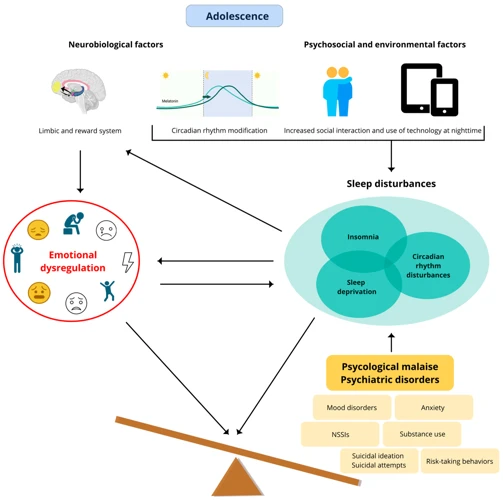
The misconception that insomnia only affects older people is far from the truth. While it is true that sleep problems can become more common as we age, insomnia can affect individuals of all ages. In fact, insomnia knows no age boundaries and can impact anyone, from young children to older adults.
Insomnia is not solely attributed to the natural aging process but can be caused by a myriad of factors that affect people of all age groups. Stress, anxiety, medication side effects, unhealthy sleep habits, and underlying medical conditions can all contribute to the development of insomnia.
It is important to note that the symptoms and presentation of insomnia may vary across different age groups. For example, older adults may experience difficulty falling asleep and staying asleep, while children and teenagers may struggle with sleep onset insomnia or have trouble maintaining a consistent sleep schedule.
The consequences of insomnia can be particularly challenging for younger individuals. Lack of quality sleep can impact cognitive function, academic performance, mood regulation, and overall health in children and adolescents. It is essential for parents and caregivers to be mindful of the sleep needs of younger individuals and address any sleep difficulties they may be experiencing.
Insomnia does become more prevalent as individuals age, as various factors such as changes in sleep architecture, medical conditions, and medication usage can contribute to sleep disturbances. However, it is crucial to recognize that insomnia is not an exclusive problem of older age. People of all ages should prioritize good sleep hygiene practices, seek treatment for sleep issues when necessary, and be aware of the potential impact of insomnia on their overall well-being.
The notion that insomnia only affects older people is a misconception. Insomnia can affect individuals across all age groups, and it is important to address sleep difficulties regardless of age. Whether young or old, seeking help, making lifestyle changes, and adopting healthy sleep habits can improve sleep quality and overall quality of life.
Myth 7: Insomnia is a Permanent Condition
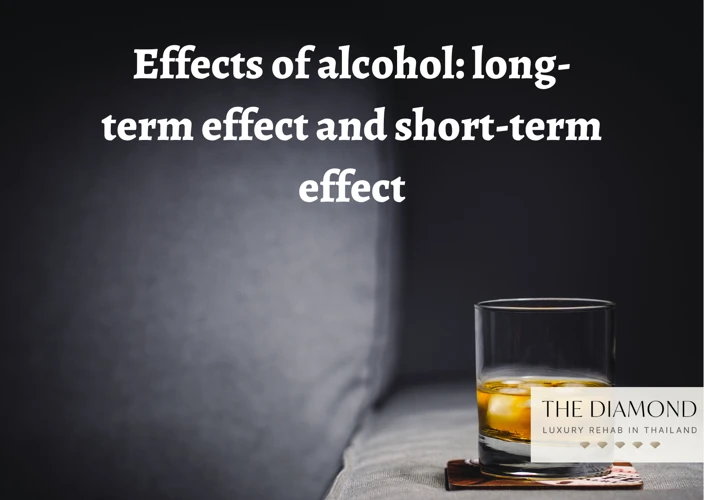
One of the common misconceptions about insomnia is that it is a permanent condition, leaving individuals feeling helpless and resigned to a lifetime of sleepless nights. However, this belief couldn’t be further from the truth. Insomnia is not a lifelong sentence but rather a temporary disruption in sleep patterns that can be effectively managed and even resolved with the right interventions.
It is important to understand that insomnia can be an acute or chronic condition. Acute insomnia is typically short-term, often triggered by a specific event or circumstance such as stress, travel, or illness. Chronic insomnia, on the other hand, lasts for a more extended period, generally persisting for at least three nights a week over a span of three months or more.
The key to dispelling the myth of insomnia as a permanent condition lies in recognizing that it is often a symptom of an underlying issue that can be addressed. By identifying and addressing the root causes of insomnia, such as lifestyle factors, mental health conditions, medical conditions, or medication usage, individuals can significantly improve their sleep quality and restore normal sleep patterns.
Seeking professional help from healthcare providers, such as sleep specialists or psychologists, can provide invaluable support and guidance to individuals struggling with chronic insomnia. They can help develop individualized treatment plans that may involve cognitive-behavioral therapy (CBT) techniques, relaxation exercises, sleep restriction therapy, or medication management if necessary.
It’s important to remember that everyone’s journey with insomnia is unique, and individual responses to treatment can vary. However, with proper intervention and a commitment to adopting healthier sleep habits, many individuals find relief from their insomnia symptoms and regain restful nights of sleep.
So, if you have been led to believe that insomnia is a permanent condition with no hope for improvement, remember that this is nothing more than a myth. With the right approach and support, individuals can take back control of their sleep and pave the way for a brighter, more well-rested future.
Myth 8: Napping During the Day Causes Insomnia
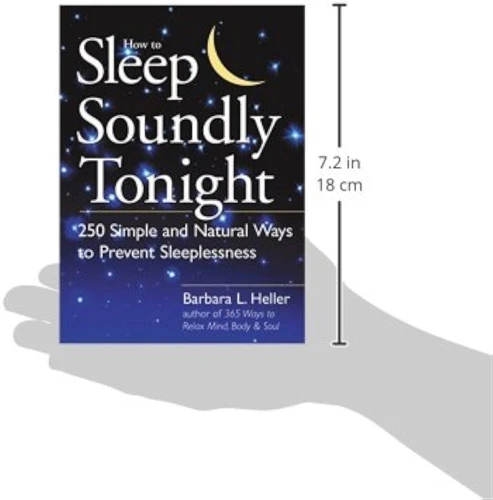
One common misconception surrounding insomnia is the belief that napping during the day leads to the development of insomnia. However, this is a myth that needs to be debunked. Napping itself does not cause insomnia; in fact, it can have several benefits for individuals, especially when done strategically and in moderation.
While it is true that taking excessively long or frequent naps during the day can disrupt your sleep schedule and make it harder to fall asleep at night, responsible and well-timed napping can actually promote healthy sleep patterns. Short power naps lasting 20 to 30 minutes can provide a quick boost of energy and help improve cognitive function, alertness, and overall productivity throughout the day.
The key to napping without negatively impacting nighttime sleep is to be mindful of the timing and duration of your nap. Avoid taking naps too close to bedtime, as this can interfere with your ability to fall asleep at night. It is recommended to take naps earlier in the day, ideally during the mid-afternoon when your energy levels naturally dip.
Additionally, it’s important to keep your naps relatively short. Extended or prolonged napping can lead to a feeling of grogginess upon waking and can disrupt your sleep-wake cycle. Stick to brief power naps that are long enough to recharge but not so long that they leave you feeling overly sluggish.
Ultimately, the relationship between napping and insomnia is not a direct cause-and-effect one. It’s more about finding a balance that works for you and aligns with your individual sleep needs. If you struggle with insomnia, it may be beneficial to experiment with your napping habits and observe how they affect your nighttime sleep. Adjusting the timing and duration of your naps can help you strike the right balance and promote healthy sleep patterns.
For tips on creating a relaxing sleep environment to improve your sleep quality, check out our article on creating a sleep-friendly environment.
Myth 9: Insomnia is Harmless and Doesn’t Impact Your Health
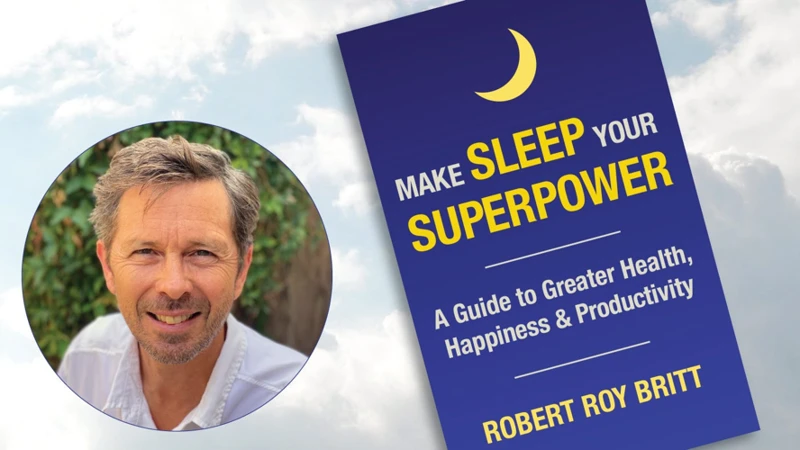
One of the most dangerous misconceptions about insomnia is that it is a harmless condition that doesn’t have any significant impact on a person’s health. However, the reality is quite the opposite. Insomnia can have far-reaching consequences for both physical and mental well-being.
When you consistently struggle with sleep, it disrupts your body’s natural rhythm and impairs its ability to restore and heal itself. Over time, chronic insomnia can weaken the immune system, making you more susceptible to infections and diseases. Lack of quality sleep has been associated with an increased risk of conditions such as obesity, diabetes, cardiovascular diseases, and even certain types of cancer.
Insomnia doesn’t just affect your physical health; it can also take a toll on your mental well-being. Sleep deprivation and poor sleep quality can lead to mood disorders like anxiety and depression. It can exacerbate existing mental health conditions and hinder the effectiveness of treatment. The impact of insomnia on mental health is a two-way street, with insomnia often being both a symptom and a trigger of psychological distress.
Beyond the physical and mental health implications, insomnia can also hinder cognitive function and impair daily functioning. Sleep deprivation can affect memory, attention, and concentration, making it difficult to perform well at work or school. It can also increase the risk of accidents due to impaired judgment and slower reaction times.
Recognizing the potential harm that chronic insomnia can cause is crucial. It’s important to address sleep disturbances promptly and seek appropriate treatment. Strategies such as improving sleep hygiene, developing relaxation techniques, and seeking therapy or medication, if necessary, can help manage and minimize the negative impact of insomnia on overall health and well-being.
To understand more about the impact of insomnia on mental health, check out our article on insomnia and mental health.
Myth 10: Insomnia Can Be Cured Overnight
One of the most persistent myths surrounding insomnia is the belief that it can be magically cured overnight. Unfortunately, this misconception sets unrealistic expectations and leads to frustration when individuals don’t experience immediate relief from their sleep troubles.
Insomnia is not a one-size-fits-all condition, and its underlying causes can vary greatly from person to person. It is crucial to recognize that finding a solution for chronic insomnia takes time and effort. There is no quick fix or overnight cure that can magically restore a healthy sleep pattern.
Resolving insomnia often involves a multifaceted approach that addresses the root causes and incorporates various strategies to improve sleep quality. This may include implementing healthy sleep habits, practicing relaxation techniques, making lifestyle changes, and seeking professional guidance.
Developing and maintaining good sleep hygiene is an essential component of insomnia management. This involves establishing a consistent sleep schedule, creating a sleep environment that promotes relaxation, and adopting habits that signal the body to prepare for sleep. It is through the consistent practice of these habits over time that individuals can improve their sleep patterns.
In some cases, underlying medical or psychological conditions may contribute to insomnia, requiring additional treatment and support. Seeking professional help from healthcare providers, such as sleep specialists or therapists, can be instrumental in addressing these underlying issues and developing a personalized treatment plan.
Remember, insomnia is a chronic condition that requires patience and persistence to manage effectively. While there may not be an overnight cure, taking proactive steps towards understanding and addressing the underlying causes of insomnia can lead to significant improvements in sleep quality and overall well-being over time.
For more information on how insomnia can impact mental health, be sure to read our article on the impact of insomnia on mental health.
Conclusion
In conclusion, it is essential to dispel the common misconceptions surrounding insomnia. Insomnia is not merely a fancy word for trouble sleeping; it is a complex sleep disorder that can have a profound impact on an individual’s physical and mental well-being. We have debunked myths such as the notion that everyone needs the same amount of sleep or that insomnia only affects older people.
Furthermore, we have learned that insomnia is not purely a mental condition and that sleeping pills are not the only solution. It is crucial to address the underlying causes of insomnia and adopt a holistic approach to improve sleep quality.
Insomnia is not a permanent condition, and with the right strategies and treatments, it can be managed and improved. While napping during the day does not cause insomnia, it is important to create a relaxing sleep environment and engage in good sleep hygiene practices.
Most importantly, we have learned that insomnia is not a harmless condition that should be overlooked. It can have significant impacts on an individual’s health, both physical and mental. Understanding and addressing insomnia is vital for overall well-being and quality of life.
Remember, there is no overnight cure for insomnia. Patience, perseverance, and a comprehensive approach are key. By debunking these misconceptions, we can better understand and support individuals who struggle with insomnia, helping them find effective strategies to achieve restful and rejuvenating sleep.
Frequently Asked Questions
FAQ 1: Can insomnia be caused by medical conditions?
Yes, insomnia can be caused or worsened by various medical conditions such as chronic pain, respiratory disorders, hormone imbalances, and neurological conditions.
FAQ 2: Is insomnia more common in certain age groups?
Insomnia can affect people of all ages, although it does tend to become more prevalent as we age. However, it is not exclusively an issue faced by older individuals.
FAQ 3: Can anxiety and stress contribute to insomnia?
Absolutely. Anxiety and stress are common culprits for triggering or exacerbating episodes of insomnia. These psychological factors can make it difficult to relax and fall asleep.
FAQ 4: Are sleeping pills the only treatment option for insomnia?
No, sleeping pills are not the only solution for insomnia. Depending on the underlying causes, other treatment options may include cognitive behavioral therapy for insomnia (CBT-I), relaxation techniques, and lifestyle changes.
FAQ 5: Is it true that napping during the day can cause insomnia?
Napping during the day can disrupt your regular sleep routine and make it harder to fall asleep at night, especially if the nap is taken for an extended period or too close to bedtime.
FAQ 6: Can chronic insomnia lead to other health problems?
Yes, chronic insomnia has been associated with various health issues such as increased risk of cardiovascular disease, obesity, diabetes, depression, and impaired immune function.
FAQ 7: Can insomnia go away on its own without treatment?
In some cases, insomnia may resolve on its own without treatment, especially if it is triggered by temporary factors such as a stressful event. However, chronic insomnia usually requires intervention and proper management.
FAQ 8: Can changing my sleep environment help with insomnia?
Yes, creating a relaxing sleep environment can significantly improve your chances of falling asleep and staying asleep. This includes factors such as temperature regulation, darkness, noise reduction, and comfortable bedding.
FAQ 9: Does using electronic devices before bed affect insomnia?
Yes, the blue light emitted by electronic devices such as smartphones, tablets, and computers can interfere with the production of melatonin, a hormone that regulates sleep. Avoiding device use close to bedtime can help mitigate this issue.
FAQ 10: Can lifestyle choices like diet and exercise impact insomnia?
Indeed, lifestyle choices play a significant role in managing insomnia. Regular exercise, a balanced diet, limited caffeine/alcohol consumption, and stress management techniques can contribute to better sleep quality.








